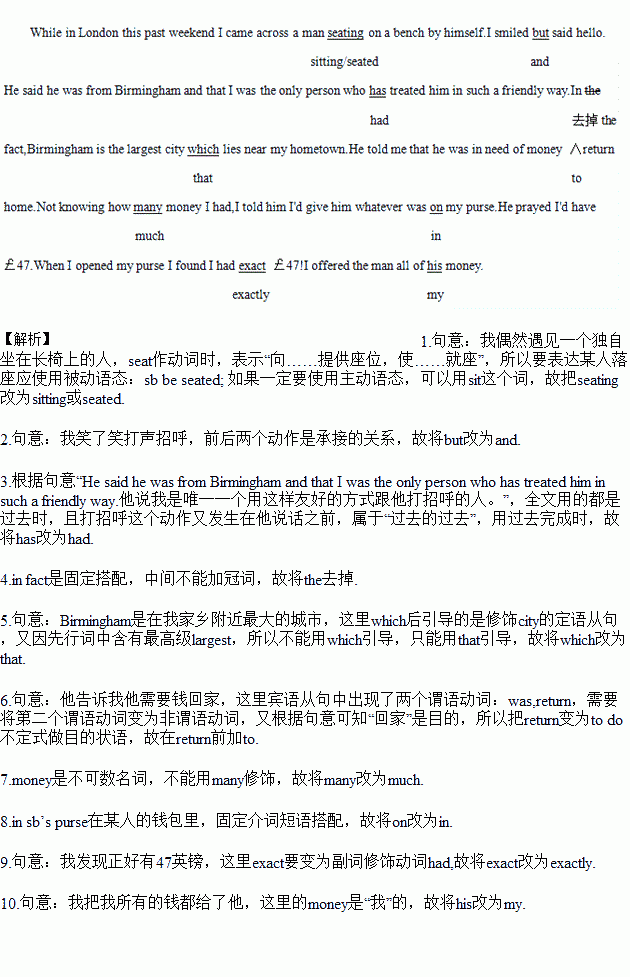题目内容
假定英语课上老师要求同桌之间交换修改作文,请你修改你同桌写的以下短文。短文中共有10处错误,每句中最多有两处。错误涉及一个单词的增加、删除或修改。
增加:在缺词处加一个漏字符号(∧),并在此符号下面写出该加的词。
删除:把多余的词用斜线(\)划掉。
修改:在错的词下划一横线,并在该词下面写出修改后的词。
注意:1.每处错误及其修改均仅限一词;
2.只允许修改10处,多者(从第11处起)不计分。
While in London this past weekend I came across a man seating on a bench by himself.I smiled but said hello. He said he was from Birmingham and that I was the only person who has treated him in such a friendly way.In the fact,Birmingham is the largest city which lies near my hometown.He told me that he was in need of money return home.Not knowing how many money I had,I told him I'd give him whatever was on my purse.He prayed I'd have £47.When I opened my purse I found I had exact £47!I offered the man all of his money.
练习册系列答案
 阅读快车系列答案
阅读快车系列答案
相关题目


 ars older than the youngest one.
ars older than the youngest one.